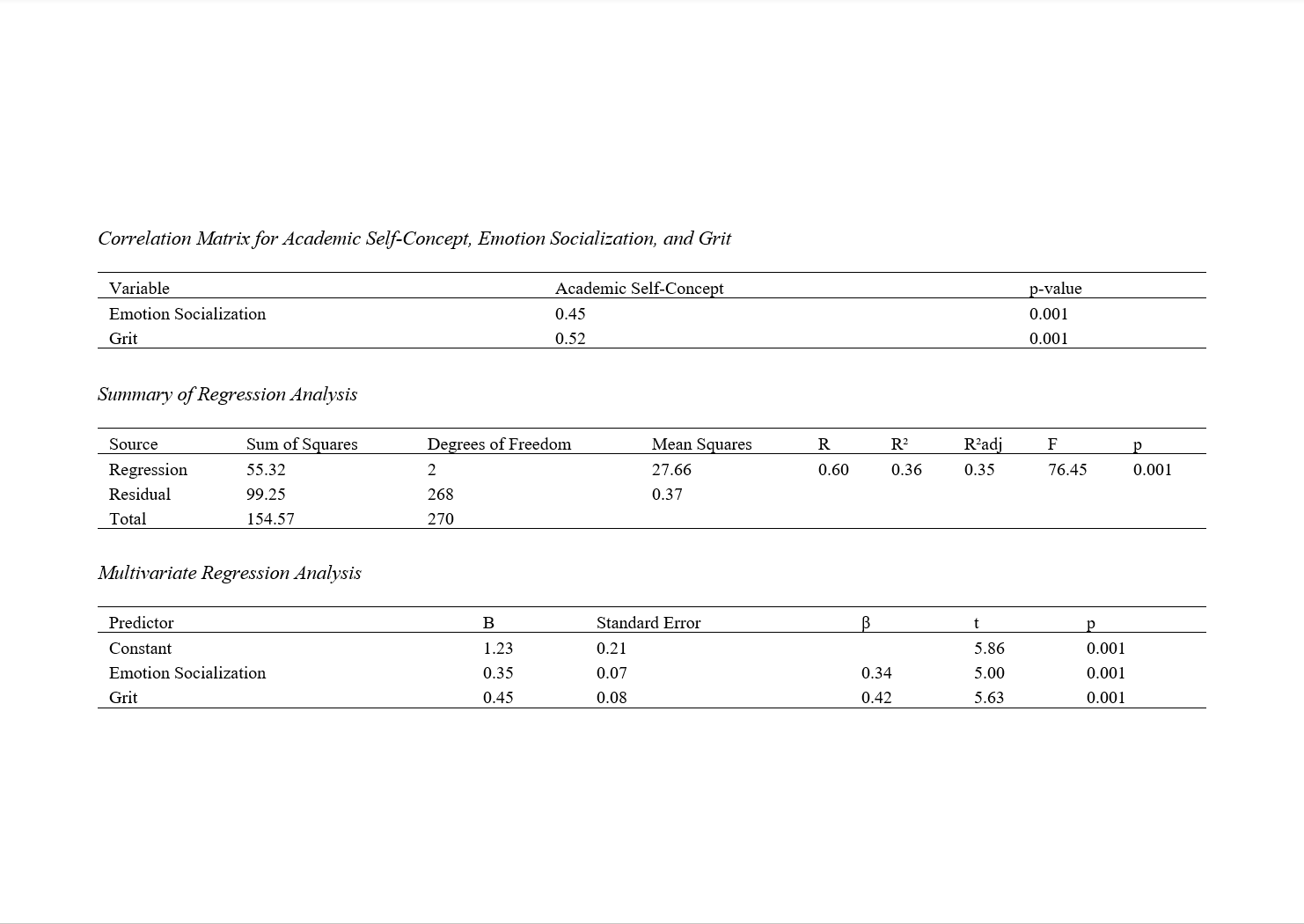Emotion Socialization and Grit as Determinants of Academic Self-Concept in Children with Hearing Impairments
DOI:
https://doi.org/10.61838/kman.prien.2.4.6Keywords:
academic self-concept, hearing impairments, emotion socialization, grit, children, educational psychology, predictive factorsAbstract
This study aimed to investigate the predictors of academic self-concept in children with hearing impairments, focusing on the roles of emotion socialization and grit. Understanding these relationships can inform interventions to support the academic success and well-being of these children. The study employed a cross-sectional design with a sample of 271 children with hearing impairments, selected based on the Morgan and Krejcie table. Participants were assessed using the Self-Description Questionnaire I for academic self-concept, the Coping with Children's Negative Emotions Scale for emotion socialization, and the Grit Scale. Data were analyzed using Pearson correlation to examine bivariate relationships and linear regression to evaluate the predictive power of emotion socialization and grit on academic self-concept, using SPSS-27. Descriptive statistics indicated moderately high levels of academic self-concept (M = 3.45, SD = 0.58), emotion socialization (M = 4.12, SD = 0.73), and grit (M = 3.89, SD = 0.65). Pearson correlation showed significant positive relationships between academic self-concept and both emotion socialization (r = 0.45, p < 0.001) and grit (r = 0.52, p < 0.001). The regression model was significant (F(2, 268) = 76.45, p < 0.001), explaining 36% of the variance in academic self-concept (R² = 0.36). Emotion socialization (B = 0.35, p < 0.001) and grit (B = 0.45, p < 0.001) were significant predictors of academic self-concept. The study found that both emotion socialization and grit are significant predictors of academic self-concept in children with hearing impairments. These findings suggest that interventions aimed at improving emotion socialization practices and fostering grit could enhance the academic self-concept of these children, supporting their academic success and overall well-being.
Downloads

Downloads
Additional Files
Published
Issue
Section
License

This work is licensed under a Creative Commons Attribution-NonCommercial 4.0 International License.





